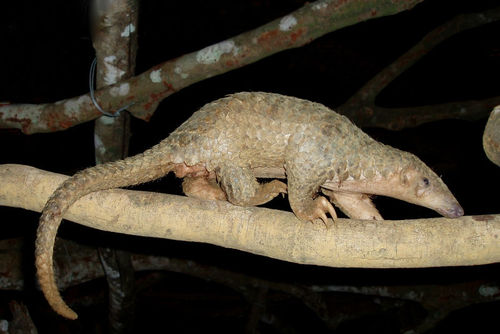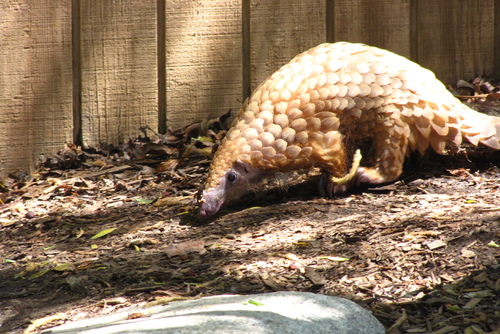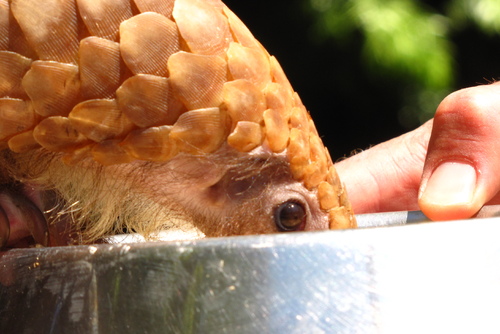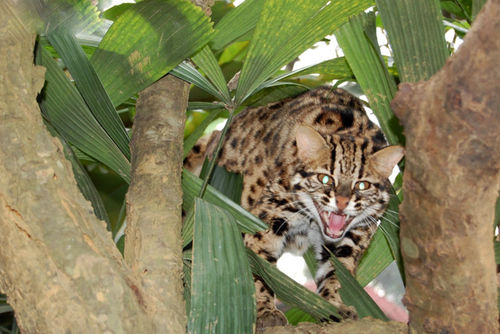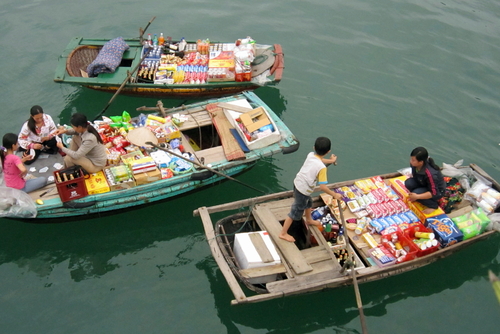After emerging from years of conflict and war, Vietnam has now become a permanent fixture on many a wanderer's bucket list and attracts millions of visitors annually. It is a diverse country, both geographically and demographically. From the chilly and lush jungle-clad mountain peaks of the north and the unique, traditional tribes that occupy them to the vast marshes and waterways of the mighty Mekong delta in the south - there is much to experience throughout Vietnam.
Traditionally the economy in Vietnam has been rooted in agriculture and rice production, and though this is still a very important part of the economy, Vietnam has transformed itself into one of the fastest growing and most diverse economies in Southeast Asia with the expansion of manufacturing and tourism. Sadly, the rapid development has also seen an increased demand for rare animal products, fueling an alarming rise the in illegal trade of protected species, both in Vietnam and the region in general.
Pangolins were once found widely throughout Asia, from southern China and Myanmar through lowland Laos, Thailand, central and southern Vietnam, Cambodia, Peninsular Malaysia and much of Indonesia. Currently, there is virtually no information available on population levels of the Asian Pangolin and no comprehensive population estimates, principally because of its increasing rarity. For many years now, pangolins have been exploited across Asia, hunted for their meat, skins and scales, which are used in traditional medicines. This has led to the dramatic decrease in populations across the region and to pangolins being labeled the world's most trafficked mammal.
While the Vietnamese government has made attempts to address this problem with laws protecting the species and restricting their export and trade, the lack of an appropriate solution for confiscated pangolins continues to be a major problem for enforcement agencies in Vietnam. This wildlife rescue centre provides an excellent facility for the care of traumatised and injured pangolins and other wildlife rescued from the black market and provides them with their best chance of rehabilitation into the wild wherever possible.
What does the project do?
Much of Vietnam’s wildlife is threatened by habitat loss and the illegal wildlife trade. In response to this, our partners in Vietnam established and developed a rescue centre with the aim of ensuring the future of Vietnam’s natural biodiversity. The centres vision is to create environmental harmony between people and nature in Vietnam where wildlife is given the opportunity to thrive. In order to fulfil this vision the centre is actively involved in supporting the confiscation of wildlife from the illegal trade. It rescues, rehabilitates and releases animals into suitable and secure habitats therefore supporting the conservation of wild populations. For animals that cannot be released the centre provides them with long term care and enrichment.
What will I be doing?
On this project you will assist in the rescue and rehabilitation of confiscated carnivores and pangolins from the illegal hunting and wildlife trade. This project will provide you with an insight into some of the conservation issues faced by wildlife in Vietnam and what is being done to save it. You will gain experience working with some of the rarest species in Asia and learn the skills necessary to care for pangolins and small carnivores.
At the centre your daily tasks will vary and will depend on the needs of the animals at the time of your visit. It is likely that you will assist in collecting and preparing animal food, making environmental enrichments, monitoring behaviours and enclosure maintenance and cleaning. When needed you will help the keepers with general husbandry activities such as raking, garden maintenance, clearing paths and painting enclosures. There is also the opportunity to participate in veterinary activities if you are appropriately qualified.

